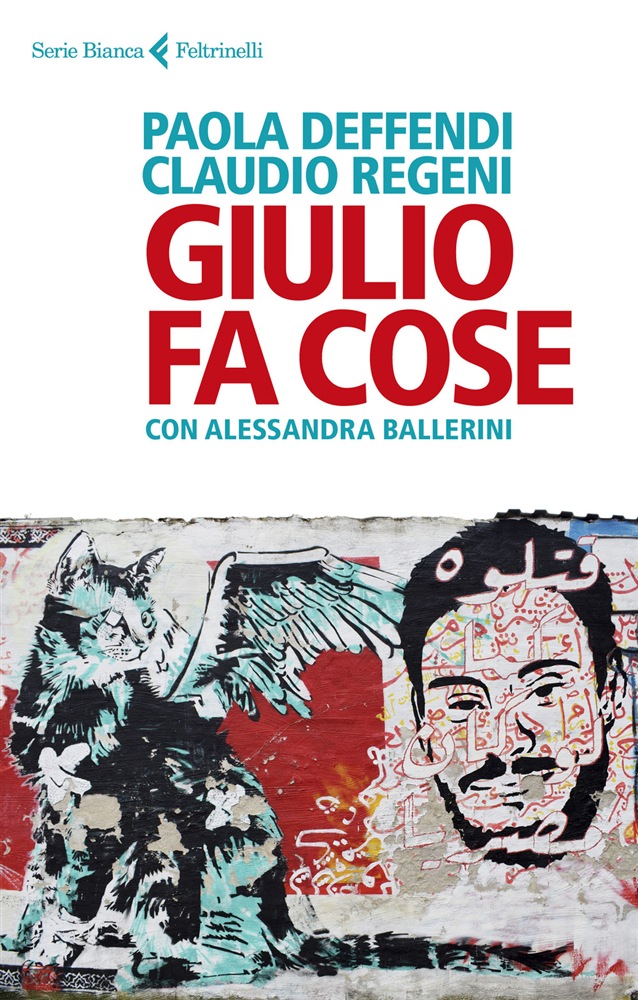In Bukavu, a woman protests in the streets against the authorities; the police shoot and…

Regeni, Ambassador to a Generation That Needs a Place. The Book, Giulio fa cose
The release of Giulio fa cose (Giulio Does Things), the book written by his parents with the help of human rights lawyer Alessandra Ballerini, makes us reflect on various aspects of our present era. The first is injustice; the hypocrisy of those calling for the withdrawal of the Italian Ambassador to Egypt is not admissible. They are instrumentally omitting to say that it was postponed by the Gentiloni government’s Minister of the Interior, Marco Minniti on 16 August 2017 [the day after a national Italian holiday] with the aim of not making it known on a large scale and not allowing for public opinion to express their sacrosanct indignation.
If we want to look for the cause of the fall of left-wing in recent years, we can a list of a host of facts, including this one. It is embarrassing and, above all, alarming in that it indicates a concept of democracy where principles come after personal interests or are, nevertheless, expendable. The only people who have a right to ask for the withdrawal of the ambassador, therefore, are Paola and Claudio Regeni who for four years have been battling to shed light on what happened in Cairo between the end of January and beginning of February 2016.
It also teaches us something else just as important. An aspect that is all too often overlooked in public debate. It reminds us that even in this era of social networks and digital realities, we still need physical spaces, locations, places to meet, talk and reflect. We are reminded of this by the International Holocaust Remembrance Day, of course, but we are also reminded of it by the many initiatives promoted all over Italy in memory of Giulio, confirming the fact that a community, in order to feel like and be one, needs not only to know each other, but to look into each other’s eyes.
Giulio, after all, was that: a seeker of news, a true idealist, an indomitable utopian, but first and foremost, a young man who travelled the world and wasn’t afraid of discovering the darkest corners of it to then report about them to a Western world imprisoned in itself and its own narcissism.
Giulio wasn’t easily placated by hearsay, other’s opinions, words spoken half-heartedly by just anyone, and least of all, by official statements. He would go where events were taking place, meet people, observe things with his own eyes. And one point of view was never enough for him.
This is what led to his death at only twenty-eight years old. The efforts he made to find out what was truly happening and describe them to the world, with the joy with which he carried out his research, and the thoroughness in his every study and his every battle. That’s how he did things, precisely, and who knows how far he would have gone if the indiscriminate violence, hate and madness of one of the most dangerous countries in the world had not struck him down in the prime of life while he was looking for real truths that ran counter to the regime’s convenient ones.
We could say, to use a definition that is dear to us, that Giulio was a “tried-and-true journalist”. Someone who wasn’t wary of putting himself in difficult situations and was proud of it. He was someone who risked things firsthand and he read, and read, and read, ever since he was a boy, not to be cocky and show off but because of his overwhelming desire to make the world a better place through his knowledge of it.
Giulio, four years ago. A book, a thousand questions still unanswered, and the certainty that, when he was alive but even more so since his death, has become the ambassador to a generation. The best part of the generation. An example and a point of reference for those who don’t have positive role models to look up to but understand they need to move on their own in an increasingly uncertain and perilous context.
Giulio continues to do things because he is all of us!





